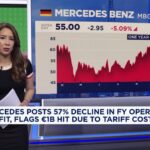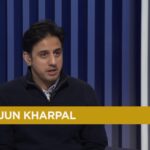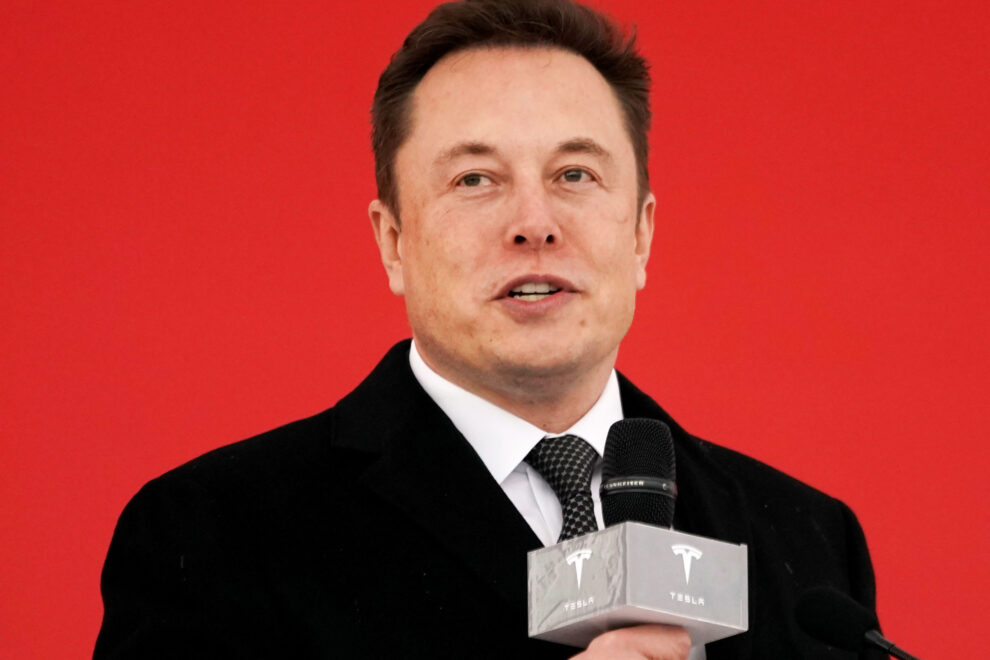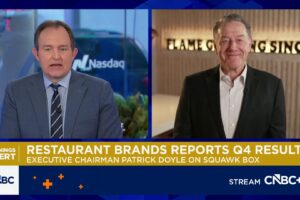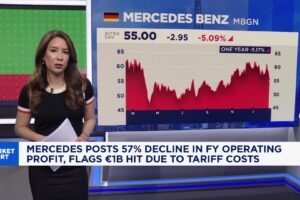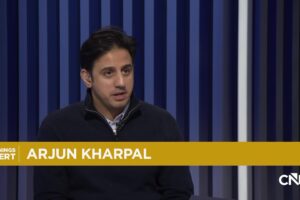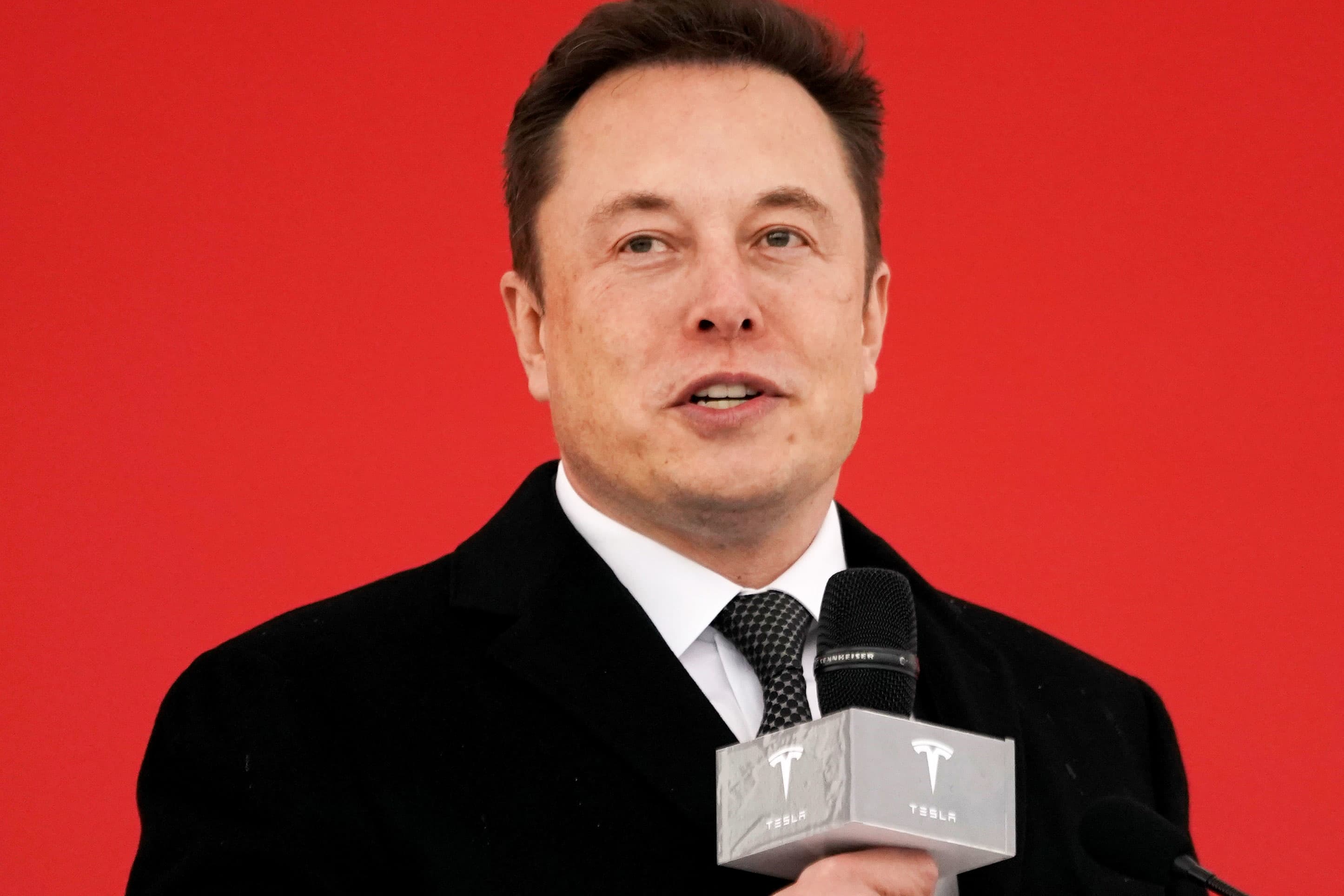
Tesla CEO Elon Musk attends the Tesla Shanghai Gigafactory groundbreaking ceremony in Shanghai, China, January 7, 2019.
Aly Song | Reuters
Elon Musk’s electric car and renewable energy company, Tesla, reported third-quarter results after the bell on Wednesday. The stock rose about 3% after hours as the company beat expectations on EPS and revenue, and reported its fifth consecutive quarter of net profit.
Here is how Tesla performed versus analyst expectations:
- Earnings per share (adjusted): 76 cents vs 57 cents, per Refinitiv
- Revenue: $8.77 billion vs $8.36 billion, per Refinitiv
- Net income (GAAP): $331 million
The company already reported that it delivered 139,300 vehicles during the quarter, a new record for Tesla.
Automotive revenue comprised $7.6 billion, about 91% of the total for the quarter. Automotive gross margins, excluding regulatory credits, rose from 18.7% to 23.7% sequentially.
The company’s operating expenses skyrocketed 33% from last quarter to $1.25 billion, as Tesla embarked on building new factories in Austin, Texas and Brandenburg, Germany, among other things.
At Tesla’s 2020 annual shareholder meeting and battery day presentation in September, CEO and co-founder Elon Musk said that vehicle deliveries in 2020 would be up 30% to 40% from last year, implying a range from 477,750 to 514,500 deliveries total. (Earlier, the company said it would comfortably exceed deliveries of 500,000 this year, but it reined in expectations slightly as the Covid-19 pandemic began to impact Tesla operations and auto sales.)
Tesla completed a five-for-one stock split during the quarter. When a company splits its stock, its total value doesn’t change, but it helps get smaller investors to buy shares.
Ahead of the earnings call on Wednesday, institutional and retail investors submitted questions to a site called Say.com that Tesla uses to pick questions for executives to answer during the Q&A portion of its calls.
Among other things, institutional investors sought information about just how much Tesla plans to spend on new factories over the next decade. They were also curious about Tesla’s pricing and margin targets, after the company recently cut prices on its vehicles including in the U.S. and China. Tesla is currently building new factories in Austin, Texas, and Brandenburg, Germany (outside of Berlin).
In September, Musk and Senior Vice President of Energy Engineering, Drew Baglino also unveiled a new battery cell that the company designed itself, and plans to produce on their own, starting on pilot lines in Fremont, California.
Institutional and retail investors also wanted to know when Tesla will roll out vehicles, and energy storage products, that include the new battery cells. They also had questions about when Tesla’s vehicles will be capable of functioning as driverless robotaxis, and when Tesla will offer its own ride-hailing service.
This is breaking news. Please check back for updates.



